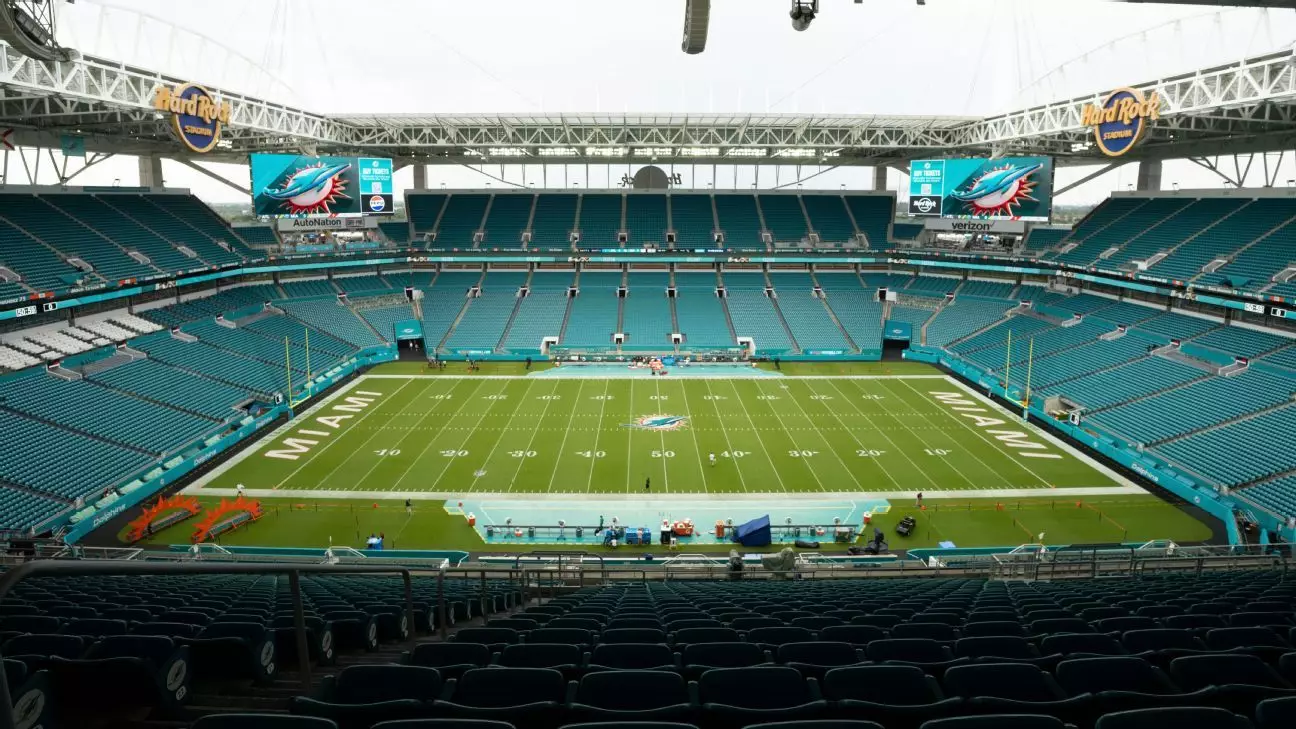The ambition to hold a LaLiga match in the United States is currently in limbo due to the complexities surrounding the logistics and governance involved in moving a scheduled game. Specifically, the potential relocation of Barcelona’s encounter against Atlético Madrid, originally slated for December 21, could not materialize in time. Recent discussions hinted at optimism about presenting this fixture at Miami’s Hard Rock Stadium, but time constraints have rendered such aspirations unattainable for the upcoming season.
The process of shifting a regular-season match from Spain to the U.S. is anything but straightforward. LaLiga requires approval from several governing bodies, including the Royal Spanish Football Federation (RFEF), U.S. Soccer, Concacaf, UEFA, and FIFA. Compounding matters is the RFEF’s current instability, highlighted by the absence of a permanent president until elections conclude on December 16. This leadership vacuum raises questions about whether the interim management could grant the necessary sanctions for the game. The recent suspension of the previous interim president, Pedro Rocha, by Spain’s Administrative Sports Court for exceeding his authority further complicates the issue.
LaLiga’s pursuit of an American fixture is not a new endeavor. Previous attempts to move matches, such as Barça’s game against Girona and Atlético’s match with Villarreal in 2019, fell through largely due to resistance from FIFA and the complexities of international governing regulations. Earlier this year, a landmark legal victory provided fresh hope by allowing Relevent Sports Group’s antitrust lawsuit to proceed, challenging FIFA and U.S. Soccer’s restrictions on hosting international league matches.
This shift in judicial sentiment has fostered optimism among league officials, leading to an ongoing belief that an international match is on the horizon. Javier Tebas, LaLiga’s president, has persistently emphasized the league’s intentions to play a game in the United States, reiterating the importance of global growth for Spanish football.
Even as the immediate plans have been set aside, the long-term potential remains intriguing. The increasing interest from American audiences for top-tier soccer, combined with a more favorable legal landscape, suggests that the dream of witnessing LaLiga in a U.S. stadium is not extinguished. The collaboration between LaLiga and Relevent Sports Group is pivotal in navigating this intricate regulatory environment, and while milestones may be elusive for the moment, the groundwork is being laid for future opportunities.
While the current ambitions of staging a match in Miami are put on hold, the evolving nature of both legal environments and audience engagement in the U.S. indicates that LaLiga’s vision could still become a reality, albeit not in the immediate future. The complexities involved underscore the challenges sport leagues often encounter when exploring international expansion, posing questions about governance, fan engagement, and market viability as they navigate toward a more globalized sporting landscape.

